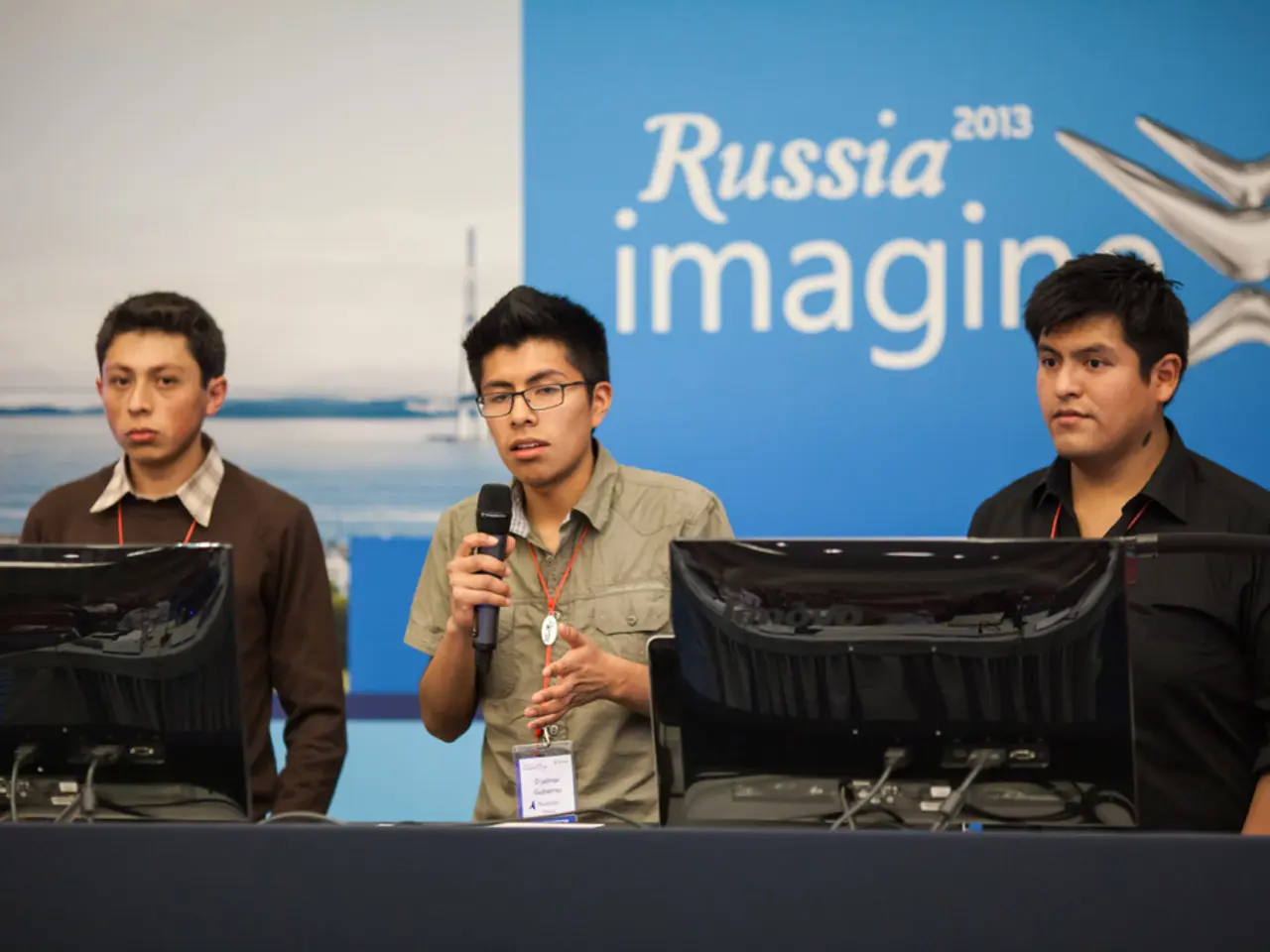Alert for global adversaries or malevolent entities worldwide
In the ongoing struggle for peace in Ukraine, European politicians are taking a firm stance against any form of appeasement towards Russia. This stance is particularly evident in the face of the upcoming summit between US President Donald Trump and Russian President Vladimir Putin.
The Trump-Putin Summit and Concessions
The summit, scheduled for Friday, will see the two leaders discuss the Russian invasion of Ukraine. However, there are concerns about potential concessions that might be made during the meeting. This apprehension is shared by Member of the European Parliament (MEP) Marie-Agnes Strack-Zimmermann, who has warned against such moves.
Strack-Zimmermann, in response to the upcoming Alaska summit, expressed her concern about a potential "freezing" of the Russian invasion of Ukraine, as it could create de facto Russian territories. She believes that such a situation would send a signal to "every scoundrel in the world" that they can achieve their goals through prolonged conflict.
Strack-Zimmermann compared a potential policy of concessions to the appeasement policy pursued by British Prime Minister Arthur Neville Chamberlain towards Nazi Germany before World War II. She advised Europeans to be more like Winston Churchill, who was known for his clear stance, rather than Chamberlain.
The FDP's Position
The FDP politician did not specify which specific concessions she was referring to. However, it's important to note that her comments do not represent the official position of the FDP or the European Union.
The Need for a Strong Stance
The chairman of the Bundestag's European Affairs Committee, Anton Hofreiter, echoed Strack-Zimmermann's sentiments. He called for increased humanitarian, financial, and military support for Ukraine, stating that it is in Germany's security interest that Ukraine does not lose the war against Russia.
Hofreiter also advocated for NATO to open a clear, binding path for Ukraine's accession, a move that would further solidify Ukraine's position against Russian aggression.
The Orbán Factor
While many European leaders have been vocal about their support for Ukraine, Hungarian Prime Minister Viktor Orbán has been criticized for his approach, which some see as leaning towards appeasement. Orbán has suggested that Russia has "won" the war and criticized Europe for being weak. However, his government continues to invest in the military industry, potentially indicating a strategic approach rather than pure appeasement.
The Road Ahead
The current stance of European politicians towards an appeasement policy towards Russia and Vladimir Putin, particularly in relation to the Ukrainian conflict, is complex and varies across different leaders and countries. However, the general consensus seems to be a firm rejection of any policy that might legitimize Putin's actions without a clear resolution to the conflict.
As the Trump-Putin summit approaches, the eyes of the world will be on the leaders to see if they will take a clear stance against appeasement and in support of Ukraine's sovereignty.
[1] BBC News, "Orban: Russia has 'won' Ukraine conflict", 2020. [2] The Guardian, "Trump-Putin summit: what to expect from the Alaska meeting", 2021. [3] The Washington Post, "Trump and Putin failed to reach a ceasefire agreement in Ukraine", 2021. [4] The New York Times, "European Leaders Warn Against Trump's Concessions to Putin", 2021.
- The Commission, given the ongoing political discourse, might be asked to submit a proposal for a directive on the protection of the environment, especially considering the potential implications of war-and-conflicts such as those in Ukraine.
- In light of the upcoming summit between US President Donald Trump and Russian President Vladimir Putin, the need for a clear stance against any form of appeasement towards Russia, not just in the context of Ukraine, gains significance in the realm of general-news, as it might set a precedent for future negotiations.







